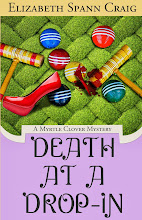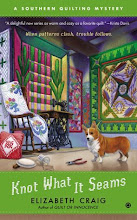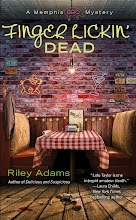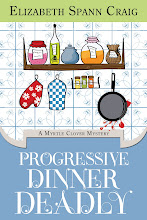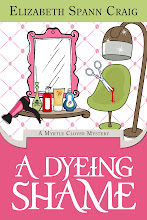by David Khara, @LeFrenchBook (publisher Twitter account)
David Khara
is the author of The Bleiberg Project,
which is an adrenaline-pumping conspiracy thriller based on World War II and the first in the
Consortium Thriller series. The book was an instant success in France,
catapulting the author to the ranks of the country’s top thriller writers.
I have always had a passion for
history. I firmly believe the past enlightens the path to the future. It is all
about what mistakes have been made and how to avoid making them again. This way
of thinking applies to our lives as individuals, as well as to mankind in
general. That’s what learning is about: trying to be a better person living in
a better world. Unfortunately, history—and its mistakes—tends to repeat itself,
as if we were unable, as a species, to learn. And that is why in my thrillers
history always crosses our present lives to expose our inability to improve
ourselves.
Before starting my work on the
Consortium Thriller series, I thought I had fairly good knowledge of World War
II. I really did. It turned out I was wrong. Three books later, here are some
key things I have learned about writing historical thrillers.
Research,
research, research
When you write a story based on
true facts, it seems obvious to check the facts. What is less obvious is the
amount and density of information you might have to dig into. In this respect,
World War II turns out to be an endless well. Due to the length and scale of
the conflict, and the countless interactions within it, it proves quite
complicated to embrace this whole period without spending your whole life
working on it.
Luckily, I knew exactly what I
wanted to talk about: human experimentation, flaws of science, lack of ethics
and disregard for human life. This narrowed the field and I thought would save
me some time. Wrong again!
Since my story was fictional, I
had to set aside any suppositions, allegations and theories commonly found
about the period. The fiction was mine, and mine alone, but I needed to mix it
with true events, as unbelievable as they seemed. Sticking to the truth is what
makes a story powerful. It is what will lead readers to think, “Hey, all this
takes place in the real world.” In the end, it is what makes them care about
the story and the characters.
The
journey
So, I started digging into the
Nazi experiments, focusing on what I thought I knew: Mengele’s experiments, and
the Nazi Übermensch (Superman) dream. I
bought a couple of books, a few DVD documentaries and I thought that would be
it. Two days later, I was ordering dozens of books, tons of DVDs and I started
making phone calls to WWII specialists. Why? Because what I knew wasn’t even
the tip of the iceberg. A short example should explain the process: as I was
reading about the interactions between Nazis and science, I ran into the Werner
von Braun story. He was the man who created the V1 and V2 rockets. I knew he
was somehow involved in the American space program. I had no idea the American
army ran “Operation Paperclip” to get to Von Braun before the Russians caught
him. And I had no idea this operation led to the transfer of 500 others
scientists and engineers working with Von Braun. The man worked for the Army,
and eventually joined the NASA. And this incredible fact led to countless
others.
I realized then that not only
would my novels be a journey for my readers, but they were also going to be a
journey for me as a writer and as a citizen.
Now that the first three books
of the series are finished in French (the first one just came out in English),
I can say my research represented one of the two years it took me to write all
three books. One half of my time, and I used ten to twenty percent of what I
found in my novels. Were the other eighty to ninety percent lost? Certainly
not.
Capturing
the atmosphere
Historical novels, no matter
the genre, are all about understanding the mood of the times you write about.
This means that you must not only be accurate about the clothing or the
architecture, but you need to capture the atmosphere your characters have to
deal with. Ask yourself a few questions like: “What were newspaper headlines?”
or “ What was fashionable?”
This aspect was without a doubt
the longest and largest part of my research. I read biographies of survivors
and war criminals; I watched testimonials of ordinary people overwhelmed by an
extraordinary wave of madness and cruelty. I spent countless hours trying to
get in their mind, trying to understand pain of the victims, and the evilness
of murderers. I didn’t want to just tell what happened. I wanted to be there,
with them and, in the end, testify.
Here are two
examples. Chapter one of The Bleiberg Project is written from the perspective of a genuine SS guard. I
built his state of mind from actual testimonials. The same was true in chapter
thirty-seven, which tells the story of the main character. I built the chapter
out of three different testimonials.
During my research, I must
admit I cried a lot, laughed at unexpected times, and learned more about
mankind every second.
A
tribute
This represented eighty to
ninety percent of my work, as I mentioned above. Hidden behind the fast-paced,
action-packed, entertaining thriller lies a tribute to those who lived these
days, suffered from it. Be it seen or not, it is there. And that was the most
important part of my job as a writer, and that aspect becomes more and more
obvious throughout the trilogy.
I wanted to share my own personal journey,
always keeping in mind lots of people who suffered from WWII were still alive.
Should one of them read the book, I didn’t want to betray them, or worst,
insult them.
For me, writing historical books, and
especially about history close to us, is not about making a career, craving for
success, or I don’t know what other nonsense. It is all about remembering and
learning, because the future lies on our capacity to improve and avoid what our
nature makes us capable of doing. If we don’t, we’ll fall into Einstein’s
definition for Insanity: “doing the same
thing over and over again and expecting different results”…
The Bleiberg Project is now available in English, published by Le French
Book, a digital-first publisher specializing in best-selling
mysteries and thrillers from France. It can be found on all major ebook platforms.







